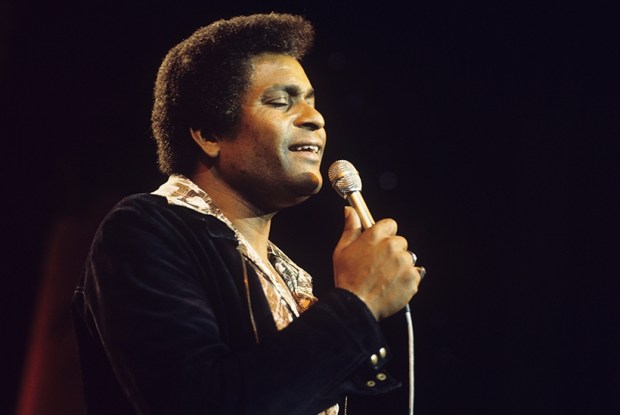I bought a record in a second-hand shop in the summer of 1981. A double album. I made sure nobody was looking when I handed over my money, and kept the purchase hidden in its brown paper bag all the way home. Back in my room, I locked the door to make sure my house-mates couldn’t surprise me — and plugged in my headphones. What followed was more than an hour of dirty bliss, a guilty pleasure before the term had been invented.
What I was listening to was a compilation album of Status Quo’s singles and most popular album tracks. I can’t remember what it was called — ‘Again and Again and Again and Again and Again’ would have been fitting, but too arch for the Quo. My housemates, if they had known what I up to, would have been both mystified and contemptuous. The music we were supposed to enjoy at the time was either the angular, dour and humourless post-punk of the Gang of Four and Echo and the Bunnymen’s portentous scouse warbling, or the glitzy cheap synth New Romantic dross which was rapidly becoming flavour of the decade. An awful decade for popular music, in the main, I would contend. By then Status Quo were the sine qua non of all that was bad about rock music, in their naff denims and with their strangely thin estuarial whine.
To be honest, they always had been — even when the brand of music they played, hard rock, dominated the pages of the music press to which I and other gullible idiots dutifully paid homage. Quo were a bit of a joke — for their simplicity and repetetiveness — in the mid-1970s and quite beyond the pale five or six years later. Anyway, I sat there, and the guitars went chug da chug da chug and I experienced a sense of elation. The same sense of cleanliness and freedom that I suspect people experience when they have been trepanned, or have undergone a vigorous colonic irrigation. And I noticed, as I sat listening to this culturally samizdat music, how effortlessly catchy were the songs: the tunes were perhaps not the most complex ever imagined, but there was always a clever hook. When I’d played all four sides of the album, I played them all over again, to no great diminution of pleasure.
The death of Rick Parfitt — described as the ‘rhythm guitarist’ of Status Quo — passed without much of a fanfare. Certainly nothing which would compare to the weeping and wailing in the media when Lou Reed or David Bowie or Leonard Cohen shuffled off their mortal coils. And yet Parfitt has a good claim to have been one of the most successful and prolific songwriters this country has ever seen.
Status Quo had more chart hits than any other British band, the Beatles included. Sales of 120 million records — rather more than the amount sold by George Michael, whose death and, uh, genius, you are probably still now reading about. Rather more than the one hit recorded by Lou Reed or the none whatsoever from Leonard Cohen (assuming you’re not counting those horrible cover versions of ‘Perfect Day’ and ‘Hallelujah’). And Parfitt was responsible for writing many of the great Quo hits, usually in collaboration with a chap called Bob Young. All those relentless boogies of the 1970s — ‘Rain’, ‘Whatever You Want’, ‘Again and Again’, ‘Mystery Song’ — when Quo were at their peak, that was Parfitt.
But the band were loathed by people we might call opinion-formers — and became a byword for that very worst of things, conservatism. Working-class, blue-collar conservatism. For example, they got on very well with Prince Charles and Prince Charles famously liked them: in terms of gaining the approval of music critics, this was a death knell. And when BBC Radio One wished to demonstrate to the hip young population that it was not naff any more, it made it public that Status Quo were banned from their airwaves. It’s OK to do this to bands beloved by the white working class: they don’t count. Their cultural preferences are to be derided and ignored, because they are primitive and coarse.
And yet in truth, Quo were a sort of British equivalent of the much more respected US band Creedence Clearwater Revival — a basic rock-and-roll outfit, plugging away at their retro schtick in a more complex and not necessarily better age. No surprise, then, that one of Quo’s biggest hits was a cover of ‘Rocking All Over The World’, written by CCR’s brilliant and irascible frontman, John Fogerty.
So, RIP, Rick Parfitt. This has been a big year for the deaths of Baby Boomer rock n rollers. Two thirds of the very, very, boring prog rock giants Emerson, Lake and Palmer, for example, have bought the farm: only Carl Palmer is left standing. And Bowie, of course, and Prince. And a great many who were rather less famous — Dale Griffin from Mott The Hoople, to mention just one.
You might argue, controversially, that a certain sexual or pharmaceutical (or both) hedonism eventually caught up with them: these days, to check out in your sixties is usually the consequence of not having lived the life of an ascetic. Hepatitis B acquired through dubious sexual contact or the use of syringes will lead to liver cancer as sure as night follows day, except with a rather longer time lag. Cirrhosis will grab you in your late fifties and early sixties. Cocaine will eventually convince your heart to give up the ghost at any time from 45 to 65. I mention this because people keep asking: why are so many of our favourite pop stars dying? Because their time is up, according to the lives they led.
Librarians and credit stock controllers might well last a few more years than Rick Parfitt managed and get to laugh a bit longer at Corbyn and know who wins next year’s edition of The Apprentice. Unless they get knocked over by a bus next week.
Got something to add? Join the discussion and comment below.
Get 10 issues for just $10
Subscribe to The Spectator Australia today for the next 10 magazine issues, plus full online access, for just $10.















Comments
Don't miss out
Join the conversation with other Spectator Australia readers. Subscribe to leave a comment.
SUBSCRIBEAlready a subscriber? Log in